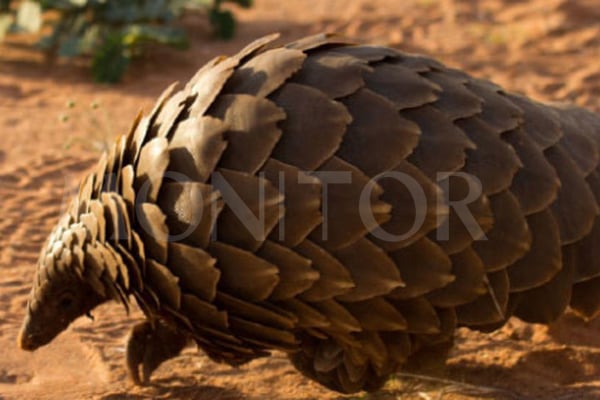Conservationists warn of extinction of pangolins

Pangolins are poached for their scales
What you need to know:
- According to Ms Edith Kabesiime, the wildlife campaign manager of World Animal Protection, the pangolin is one of the 10 most endangered animal species in the world, just like the elephants and lions.
Animal conservationists have warned of the looming extinction of pangolins in the country if no urgent measures are put in place to protect the rare species.
According to Ms Edith Kabesiime, the wildlife campaign manager of World Animal Protection, the pangolin is one of the 10 most endangered animal species in the world, just like the elephants and lions.
“Initially, we thought the elephants were the most trafficked wild animals but in the last one decade, it is estimated that the pangolin has become the new elephant or the new rhino,” she said on Friday ahead of World Pangolin Day.
“In terms of numbers, for instance, between 2000 and 2013, more than one million pangolins were trafficked, on average, that is about 100,000 pangolins per month,” Ms Kabesiime added.
She explained that in Uganda, there are no clear statistics on the number of pangolins being trafficked out of the country.
“We don’t even know the number of those trafficked in Uganda but globally, it’s a huge problem. In Asia, they have almost wiped out their pangolins; that is why their burden has shifted to Africa just because of high demand for their scales and meat,” she said.
According to Ms Kabesiime, pangolin scales are in high demand because they are used as traditional medicine in Asian countries to treat male impotence, skin problems and improve lactation in mothers as well as being a delicacy.
She further said pangolins are often smoked out of their hideouts and repeatedly knocked with blunt objects before being thrown into boiling water for extraction of their scales for export to Asia.
The threats
“To make matters even worse, when adults are captured, their babies can hardly survive on their own, leading to suffering and population decline,” she said.
Ms Rebecca Sandoval, the co-founder and director of Biodiversity Alliance, said the pangolins play a crucial role in maintaining the balance of our ecosystems, hence the need to protect them.
“It is imperative that we take action to protect them before it is too late since they eat a lot of termites in our gardens,” Ms Sandoval said.
In 2019, the Uganda Revenue Authority (URA) in an operation at Elegu on the Uganda – South Sudan border seized 3.2 tonnes of elephant ivory and 423 kilogrammes of pangolin scales with an estimated value of $2.3 million and $1.2 million, respectively.
Customs officials discovered the consignment in three containers concealed in logs of wood and wax in transit from the Democratic Republic of Congo to Asia.
There are eight species of pangolin: four found in Asia and four found in Africa. They have traditionally been consumed in both regions.
Pangolins have a slow reproductive rate, with females giving birth to only one or two offspring per year, which makes it difficult for populations to recover from over-hunting.
Way forward
According to the wildlife conservationists, countries such as Uganda must address enforcement and governance failures to protect pangolins, invest in and promote herbal and synthetic medicine, and support for alternative livelihoods and education within the countries where the animals exist.




